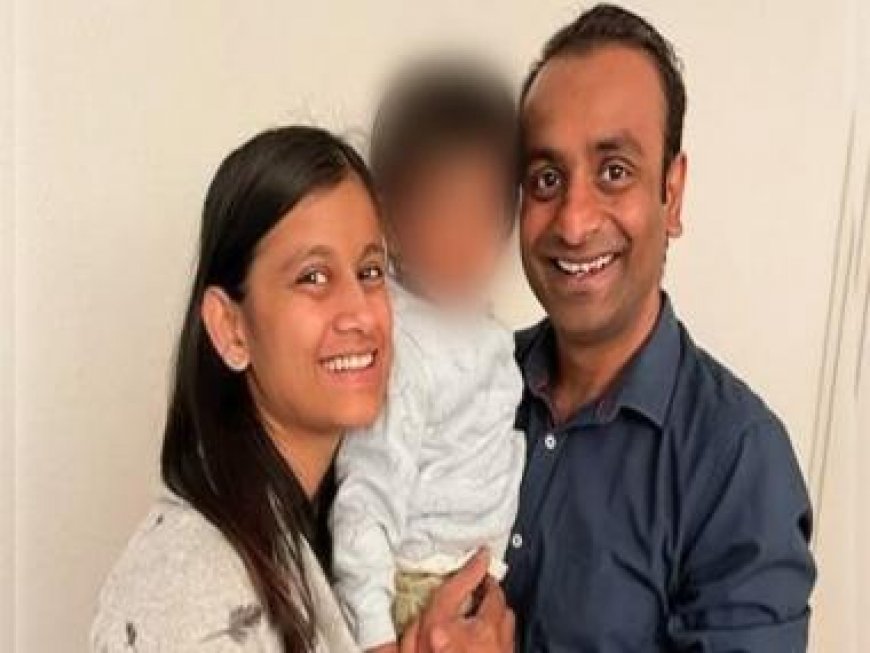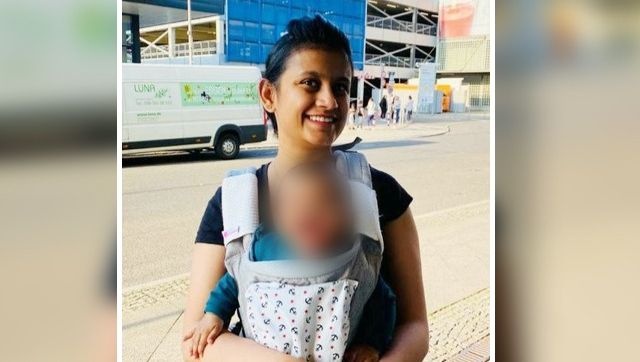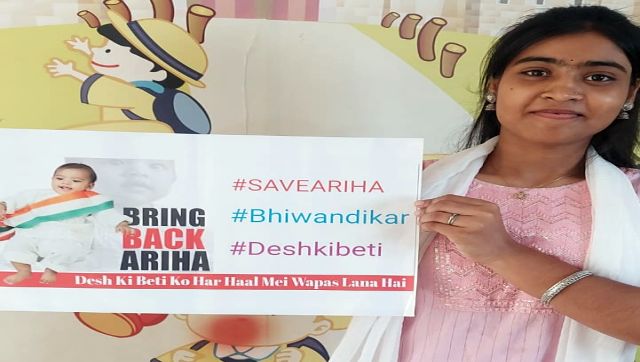Ariha Shah case: Why Jugendamt, Germany's child services, is controversial
Ariha Shah case: Why Jugendamt, Germany's child services, is controversial

Germany’s defence minister Boris Pistorius’ visit to New Delhi, starting tomorrow (6 June), is going to grab eyeballs and the headlines. However, it’s not for the reason one may imagine – the Rs 50,000 crore submarine manufacturing deal for India is likely to be eclipsed by the matter of a three-year-old child, who has been taken away from her parents since September 2021.
Officials say that the matter of Ariha Shah, a two-year-old toddler and Indian national, who has been separated from her parents by German child protection authorities nearly two years ago will be discussed at length with Pistorius during his visit. This comes after the Ministry of External Affairs on Friday called for her return once again.
Return #BabyAriha#ArihaShah #GermanyReturnAriha pic.twitter.com/IzmsAk3dT4
— Sᴜᴢᴀɴɴᴇ Bᴇʀɴᴇʀᴛ (@suzannebernert) June 2, 2023
The case has garnered even more attention after 59 MPs from 19 political parties have urged in a joint letter to the German ambassador in India to do everything possible from his side to ensure the return of the Indian child. In the letter addressed to the German envoy in India, Philipp Ackerman, both Rajya Sabha and Lok Sabha MPs wrote, “We, Members from both Houses of India’s Parliament, belonging to 19 political parties across the political spectrum are writing this joint letter to you with an urgent request regarding the repatriation to India of Ariha Shah, a two-year-old baby girl, a citizen of India as are her parents Dhara and Bhavesh Shah. The family was in Berlin as the baby’s father was employed in a company there. The family should have been back in India by now but for some tragic events.”
Further, the letter read: “We do not cast aspersions on any agency in your country and assume that whatever was done was thought to be in the best interests of the baby. We respect the legal procedures in your country, but given that there are no criminal cases pending against any member of the said family, it is more than time to send the baby back home.”
As the case progresses, we take a closer look at Germany’s Child Services – Jugendamt – and why they have been deemed controversial in the past.
Germany’s child welfare agency
The Jugendamt is a German and Austrian local agency set up to promote the welfare of children. Each municipality, town or “Kreis” (county) – depending on its size – has its own “Jugendamt”.
According to reports, the Jugendamt, also known as the Youth Welfare Office, has been in force since 1924 and was created during the Weimar Republic by the “Reichsgesetz für Jugendwohlfahrt”.
The functions and powers of the Jugendamt are very similar to what the Child Protective Services in the US and the Children and Family Court Advisory and Support Service in England and Wales do. They have been empowered to separate parents from their children if neglect is to be found.
Also read: 'State kidnappings': Norway's child care policy a nightmare for foreign parents
As per German law, if the Jugendamt learns of a neglected or abused child, one of their employees will speak to the family and possibly the neighbours, teachers or caretakers. If during these visits, the authorities find that a child is in danger, they will take the child away from the family. When a child is taken away from the family, they are first sent to a foster family or a supervised children’s shelter. As soon as the situation improves at home, the child can go back to their family.
Ariha Shah and the Jugendamt
In September 2021, Bhavesh Shah and his wife Dhara, took their seven-month-old toddler, Ariha, to hospital with a perineal injury — an injury in the genital region. The parents explain that the Ariha was accidentally hurt by her grandmother.
However, German authorities suspected it to be a case of sexual assault and took away the baby from her parents on 23 September 2021.

The parents tried their hardest to explain the situation to German officials and prove themselves as good parents in a system that was alien to the pair. They stated that they faced language troubles and were even made to sign documents, according to a report in The Print, without access to proper translators.
The report by the Jugendamt stated two more injuries – one that Dhara has an explanation for. She said to The Print that one of the injuries took place when Ariha slipped after her oil massage and struck her head on the counter where her bathtub had been placed, and the other was when she accidentally got injured while playing without her diaper, which was left off for a few hours every evening owing to diaper rash.
Though the criminal investigation ended without any charges being filed, the Jugendamt filed a civil custody case, asking that the parental rights of Shahs be terminated. They also said that Ariha should have “minimum contact with the parents,” keeping in mind both Ariha being in a sensitive phase regarding “attachment” and the agency’s intentions to permanently place the Jain child in a German family.
The matter was also highlighted by External Affairs Minister S Jaishankar during his meet with his German counterpart in December 2022. At a press conference, Jaishankar said, “There is a case related to a child called Ariha Shah. We have concerns that she should be in her linguistic, religious, cultural, and social environment. This is her right.”
Ariha’s parents, practising Jains, are also concerned about their child losing her Indian and Jain culture, religion and identity, claiming that the German Youth Welfare Office refuses to serve her vegetarian food because they believe that “only a non-vegetarian diet is nutritious” for the child.
Jugendamt and past controversies
While the Ariha Shah case has created quite a diplomatic stir, this isn’t the first time that the Jugendamt and its functioning have been questioned. In 2018, the agency had taken away 52,590 children from their parents and placed in foster families and homes.
There have been several instances of when the Jugendamt has acted without proper justification.
In 2014, German author Beate Kelly said that the Jugendamt took away her grandson from her elder daughter’s custody for no apparent reason. She told Malta Independent that the more she surfed the internet to find more information about the Jugendamt, she discovered that thousands of families had been victims of the Jugendamt. “The way the Jugendamt operates makes one think he or she is living in Nazi Germany; families are afraid of a loud knock on their door in the early hours of the morning with police bursting in, and taking away their children. The Jugendamt, which dominates Germany’s controversial family court system, takes children when it wants, from perfectly normal families,” Kelly was quoted as saying.
In 2018, a Polish mother living in Germany had her three children returned after they were taken away by the German child welfare authorities, the Jugendamt. The case emerged after the mother of three went against the German court’s decision of splitting child custody with their father. As a consequence German authorities seized the children. It was after she approached the Polish justice ministry for help, did she get her children back.
There’s also a previous case pertaining to a Polish family. In 2016, a three-day-old newborn baby was taken away from its mother and placed into a foster family at the behest of the Jugendamt. The authorities cited concerns about the mother’s financial situation which might have put the newborn’s welfare at risk. The child was returned to the mother after intervention from the Polish justice ministry.
Even Turkish families have complained of the Jugendamt’s questionable ways. In fact, families of Turkish origin have a saying – ‘Beware of the Jugendamt, hide your kids.’ The Daily Sabah reports how Turkish families are afraid to take their children to the hospital or to a psychologist, fearing their child will be separated from them on the behest of the Jugendamt.

In 2020, the issue became a diplomatic affair when Yakup and Kuzey Altınkaya were taken away from their parents by the child welfare agency in North Rhine-Westphalia on allegations of violence. Even though, a German court later ruled that the Jugendamt should return custody of the children to their mother, the agency failed to do so.
There’s also another instance when the Jugendamt since it seized three children from their father on the grounds that he “spoils their children and shows excessive attention.”
In April this year, there was mass outrage when videos showed German authorities forcefully removing a Muslim immigrant child from his family in the city of Bremerhaven. The parents said that the little boy had some health issues, was distressed, and that he should not be taken away from them. But one of the police officers was heard telling the family that it was a decision by the court and the Jugendamt (youth welfare office), and that they were there to carry out the court order.
Experts point out that the child removal instances is spurred on by the fact that the Jugendamt gets paid by the state according to the number of children it takes care of. This undermines the operation of the institution, which has originally been founded with good intentions.
In the meantime, only time will tell if Ariha is reunited with her parents. But the case does throw up questions on the Jugendamt and the manner in which it functions.
With inputs from agencies
Read all the Latest News, Trending News, Cricket News, Bollywood News,
India News and Entertainment News here. Follow us on Facebook, Twitter and Instagram.
What's Your Reaction?



























































